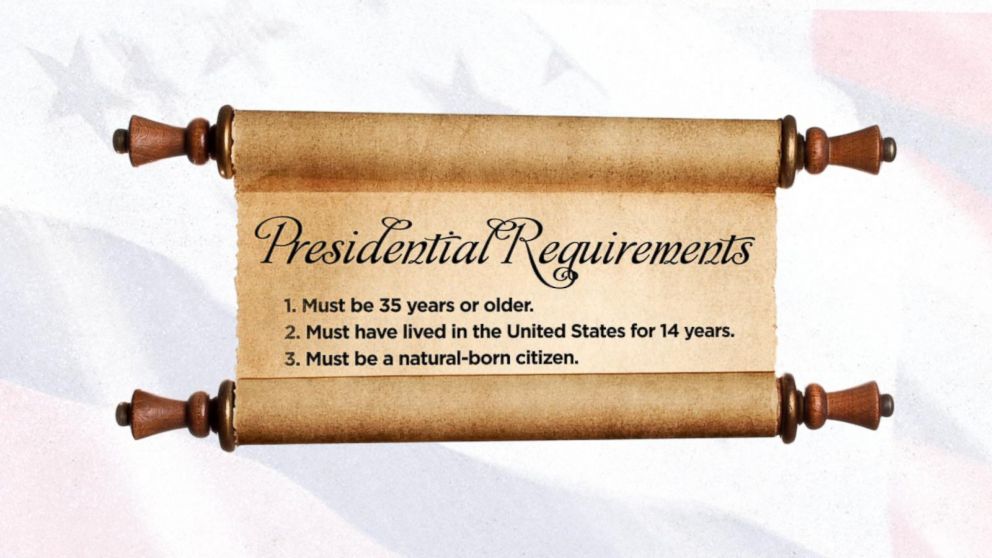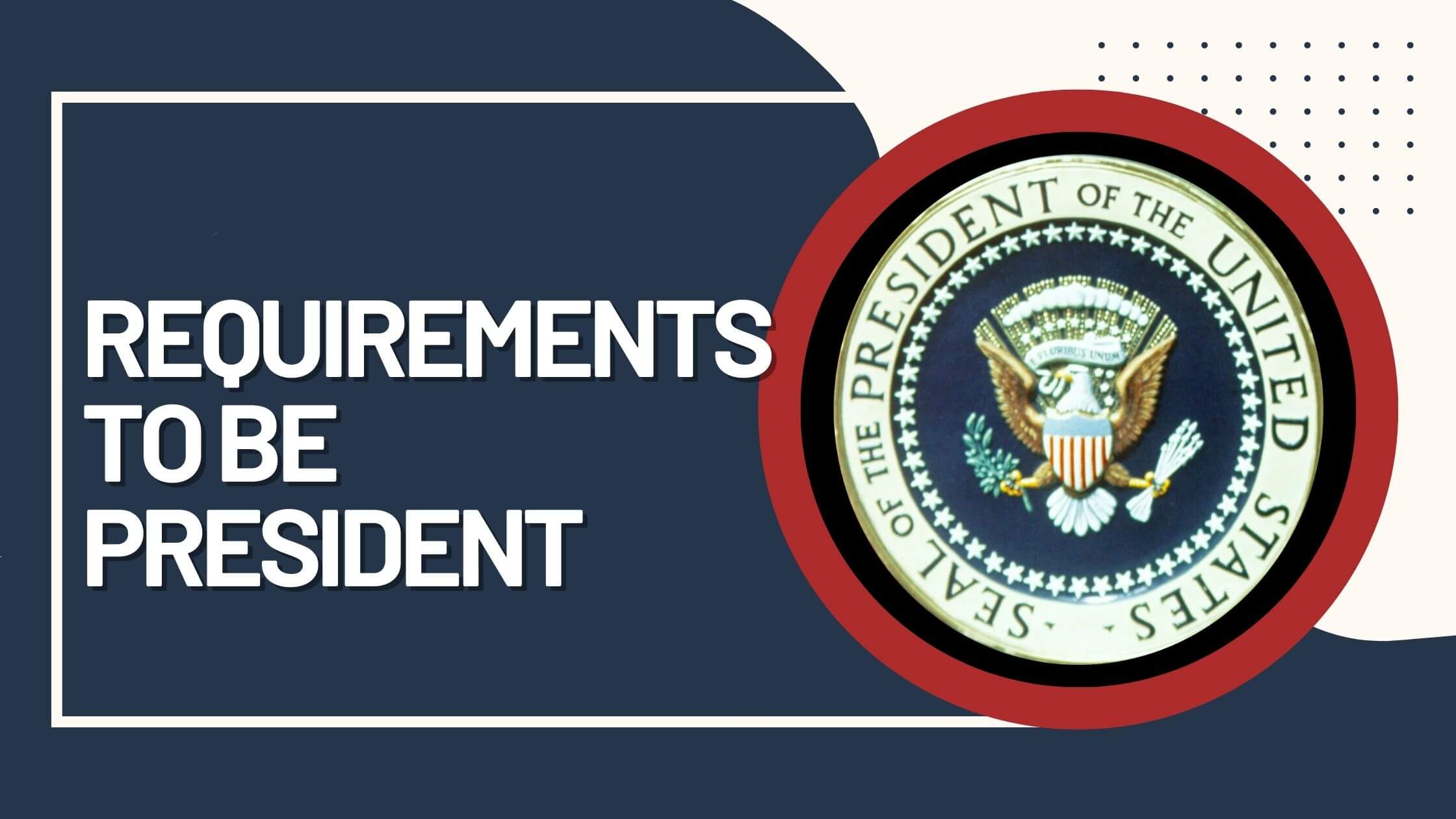Understanding The Qualifications To Become The President
In the realm of politics, the position of the president stands as one of the most powerful and influential roles within a country. Aspiring leaders often dream of this prestigious title, but few understand the specific qualifications required to attain it. The qualifications to be the president are not merely a checklist; they reflect the fundamental ideals and values that are crucial for effective governance. In the United States, these qualifications are enshrined in the Constitution, serving as a guide for potential candidates.
As citizens, we often ponder what it takes to lead a nation. The qualifications to be the president encapsulate a mix of legal requirements and personal attributes. Beyond age, citizenship, and residency, the path to the presidency demands a deep commitment to public service, leadership skills, and a keen understanding of national and global issues. This article aims to explore the essential qualifications and what they mean for those who aspire to this role.
Every aspect of the qualifications to be the president sheds light on the responsibilities that come with such authority. Understanding these qualifications not only informs potential candidates but also empowers voters to make educated decisions during elections. From the foundational principles laid out in the Constitution to the personal qualities that define an effective leader, we will delve into what it truly means to qualify for the presidency.
What are the Legal Requirements to be the President?
The Constitution outlines three primary legal qualifications for anyone aspiring to become the president of the United States. These are:
- Age: The candidate must be at least 35 years old.
- Citizenship: The individual must be a natural-born citizen of the United States.
- Residency: The candidate must have been a resident of the United States for at least 14 years.
Why is Age a Requirement?
Age is a significant factor in determining who is fit to lead a nation. At 35, individuals are generally seen as having sufficient life experience and maturity to handle the complexities of national and global affairs. This age requirement ensures that candidates have had time to develop their leadership skills and understand the responsibilities that come with high office.
How Does Citizenship Impact Eligibility?
The requirement of being a natural-born citizen is rooted in the desire to ensure loyalty to the nation. This provision is designed to prevent any foreign influence in the highest office of the land. It emphasizes the importance of a leader having a deep-seated connection to the country they govern.
What Personal Qualities Should a Presidential Candidate Possess?
While legal qualifications are clear-cut, the personal qualities of a presidential candidate can be more subjective. Some of the key attributes that contribute to effective leadership include:
- Integrity: A president must demonstrate honesty and ethical behavior.
- Vision: The ability to articulate a clear vision for the future is essential.
- Resilience: A strong leader must navigate challenges and setbacks with grace.
- Empathy: Understanding the needs and concerns of citizens is crucial for effective governance.
Why is Integrity Important for a President?
Integrity builds trust between the president and the public. A leader who is honest and transparent fosters a sense of reliability, which is crucial during times of crisis. Without integrity, a president may struggle to gain the support needed to implement policies and lead the country effectively.
How Does Vision Shape a President’s Leadership?
A clear vision allows a president to inspire and mobilize citizens towards common goals. It serves as a framework for policy-making and helps to unify the nation under shared objectives. Leaders with vision can navigate complex issues and propose innovative solutions that resonate with the populace.
What Role Does Experience Play in Qualifications to Be the President?
Experience in governance, law, or military service is often seen as a significant advantage for presidential candidates. While not a formal requirement, having a robust background in leadership roles can bolster a candidate's credibility and effectiveness. Candidates who have held public office, participated in legislative processes, or led organizations may demonstrate the skills necessary to govern effectively.
How Do Political Parties Influence Presidential Qualifications?
Political parties play a crucial role in shaping the landscape of presidential qualifications. They often have their own set of criteria for endorsing candidates, which can include political experience, fundraising abilities, and alignment with party values. The primary process serves as a filtering mechanism, where candidates must prove their viability to party members before they can run in the general election.
What Are the Challenges in Attaining the Presidency?
The road to the presidency is fraught with challenges. Candidates must navigate a complex political landscape, contend with public scrutiny, and secure funding for their campaigns. Additionally, the increasing polarization of politics requires candidates to appeal to diverse voter bases while remaining true to their core principles.
Conclusion: What Are the Qualifications to Be the President?
In summary, the qualifications to be the president encompass a blend of legal requirements and personal attributes that are essential for effective leadership. From the age and citizenship mandates to the importance of integrity, experience, and vision, each qualification plays a vital role in shaping a leader capable of guiding a nation. As voters, understanding these qualifications empowers us to select candidates who not only meet the legal standards but also embody the qualities necessary to lead with integrity and purpose.
Also Read
Article Recommendations


:max_bytes(150000):strip_icc()/requirements-to-serve-as-president-3322199-v4-5b5b6d8746e0fb0025f96b90.png)
ncG1vNJzZmivp6x7tMHRr6CvmZynsrS71KuanqtemLyue9Cupq2do6OyuL%2BQbmawoJGpeqK%2BxGaroZ1dpsKiuMifoJyZpJ68r7%2BMraZmmpViwamxjKmpnquZmbKvwI2hq6ak
